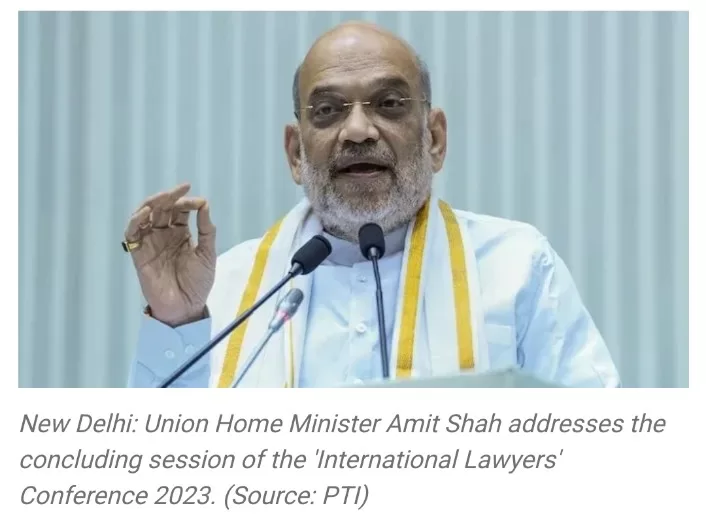In a compelling address to the 118th Annual Session of the Chamber of Commerce and Industry, Union Home Minister Amit Shah asserted that India’s last nine years have been marked by transformative policies, unwavering political stability, the essence of democracy, and a collaborative approach within the federal structure. This period, he noted, effectively pulled the nation out of the era of “policy paralysis” that persisted from 2004 to 2014.
Shah went on to underscore that the period spanning 2004 to 2014 was one that “shook the country,” representing a phase of political turbulence and instability. In stark contrast, the subsequent nine years have witnessed a remarkable display of performance and progress. Under the leadership of Prime Minister Narendra Modi, India’s economy has charted a new course, surging from $2.03 trillion to an impressive $3.75 trillion, almost doubling in size. Additionally, per capita income has surged from Rs 68,000 in the fiscal year 2013-14 to an impressive Rs 1.80 lakh.
The Home Minister lauded Prime Minister Modi’s efforts in driving comprehensive change across various sectors, effectively transforming the nation. Shah highlighted the successful hosting of the G20 Summit as a testament to India’s newfound energy, invigorating not just trade and industry but every facet of the nation, propelling it into a new era of momentum and development.
Trade and industry, Shah emphasized, are the beating heart of India’s economy, providing the essential impetus. The dynamic changes ushered in by policies have put India on the global map, often referred to as the beacon of “India’s Moment,” radiating vibrancy worldwide.
Shah further underscored India’s appeal as a preferred destination for businesses worldwide. He noted that whenever companies contemplate shifting their bases, India consistently emerges as the shining choice.
India’s demographic advantage, with its youthful population and a wealth of engineers, doctors, and technocrats, coupled with democracy, teamwork, and clear policy formulation under Prime Minister Modi’s leadership, has positioned the nation to assert its dominance in every sphere during the “Amrit Kaal.”
Highlighting the role of the Production Linked Incentive Scheme, Shah articulated how it has fulfilled the aspirations of the ‘Make in India’ initiative across 14 diverse sectors within the country. He emphasized that the next 25 years are pivotal for India’s trade and industries, necessitating a shift in both size and scale for Indian companies. Shah called for Indian enterprises to embrace a multinational identity and encouraged the strengthening of the network of small and large industries.
Finally, Shah lauded the Modi government’s new education policy, projecting India as the world’s top destination for students in the next decade.




